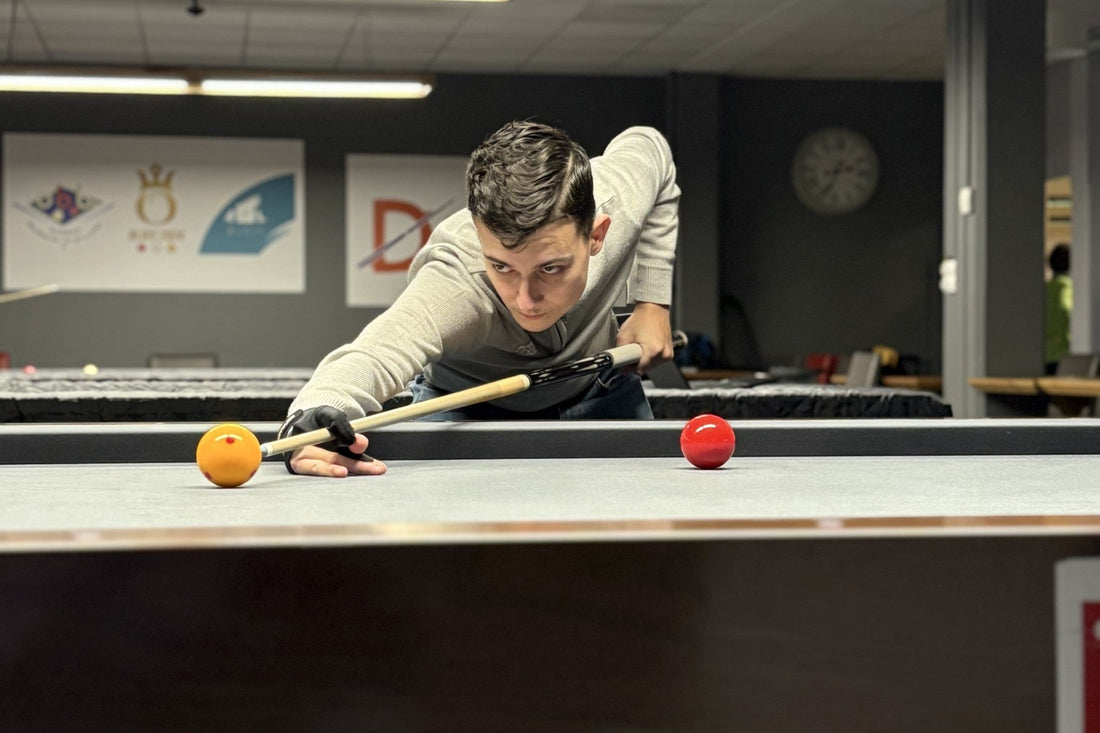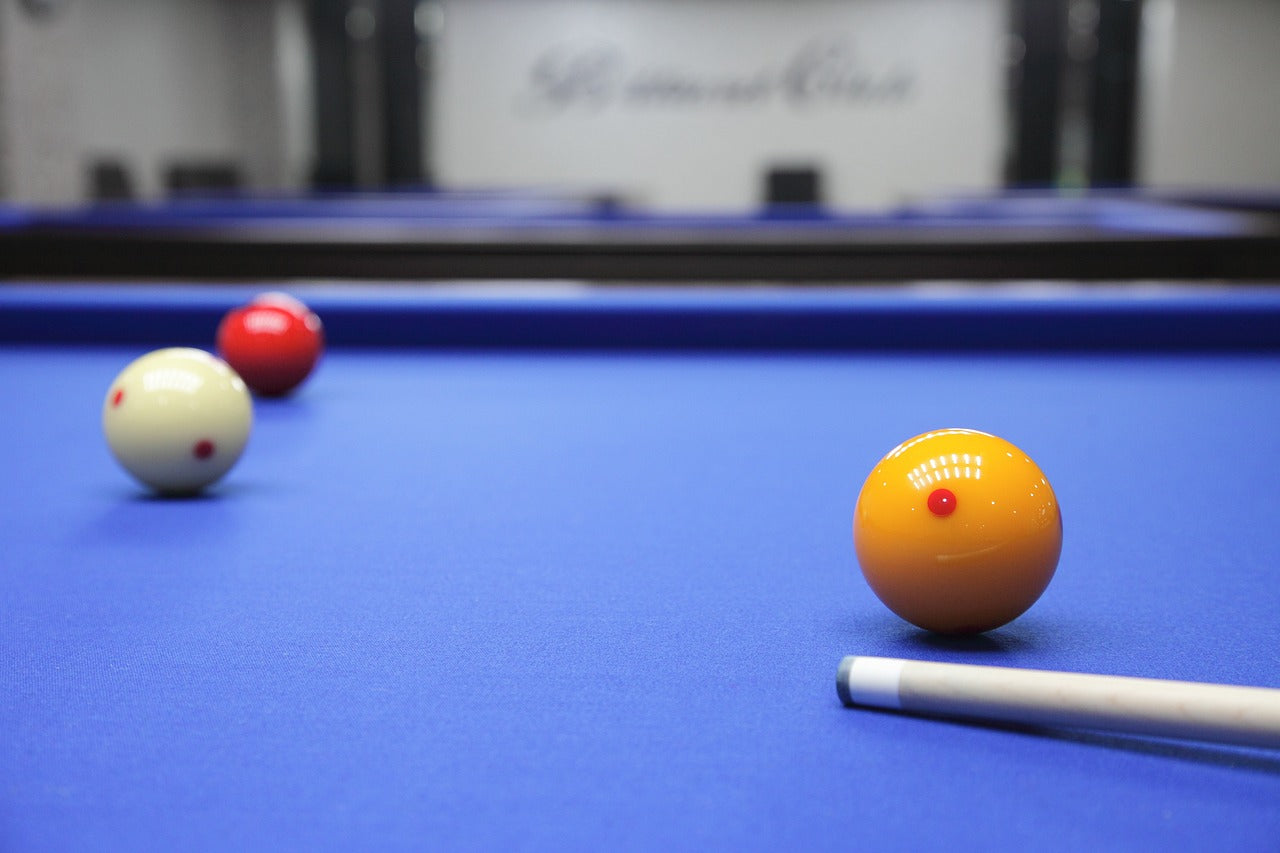Doozy: Maxime, thank you for taking the time to answer my questions today. To start with, let's talk a bit about the news. I understand you've got a busy schedule until July, is that right?
Maxime: Exactly. I've got a very busy schedule until July, with about one event every week. Right now I'm concentrating on the next two events: Saint-Maur and the World Cup in Vietnam.
Doozy: With that kind of pace, what does your schedule look like?
Maxime: Well, I train every day to keep up. Even if I sometimes have to travel for competitions, daily training is essential for me. I recently changed clubs, I'm now with Sélestat (67) and I live in Colmars. My training sessions are almost daily: I go over my matches if possible, work on placement points, variations depending on the positions, and I practice free play. Sessions last an average of three hours. I also very often rework the points I missed during my previous matches. Finally, aiming and movement are also elements that I work on a lot, particularly the position of the arm and hand. I train on my own and I prefer to do it that way. There are a lot of factors to take into account to be among the best at billiards and working on them takes up a lot of my time.
Doozy: Do you think billiards is a solitary sport?
Maxime: Yes, there's a very individual aspect with a lot of introspection and self-criticism. However, there's also a collective aspect that's important when you're part of a team. Cohesion is essential, and having good players in the team gives you a boost.
Doozy: How do you build cohesion in your team?
Maxime: For me, cohesion is built through regular interaction. For example, I meet Glenn (Glenn Hofman, Dutch professional player) in two teams: Doozy and Cues&Darts. I did a training course with him, and we see each other at competitions. This gives us plenty of opportunities to chat before and after matches, both on the pool table and on other subjects. We also have informal discussions on social networks. It's these interactions that allow the players in a team to build a solid relationship, and it's this relationship that allows us to develop the cohesion that pulls us through our matches.
Doozy: Very interesting, thank you. I didn't think that the collective aspect could be so important in a sport like billiards, but what you say makes a lot of sense indeed. Let's change the subject a bit and look at your background. What is your academic background and how did you discover French billiards?
Maxime: As far as my academic background is concerned, I obtained a Pastry CAP in 2017 and joined this CAP directly after secondary school. As for my discovery of billiards: during my childhood and then in my early teens, I played club football, but in 2011 a heel injury forced me to stop for six months. During that period, I often accompanied my father to the Colmard Billard Club and one day I asked him if I could try playing. I got hooked straight away. At first, I learnt the basics like a lot of people: positions, making an easel, quantities... then I practised a lot on my own, every Wednesday (from 1pm to 10pm) and every weekend. I started by playing freestyle for eight months, then quickly switched to three-stripes. I learnt a lot by playing a lot of free games on my own and also by taking part in federal courses.
Doozy: What do you think is the state of French billiards in our country?
Maxime: Unfortunately, it's a scene that's struggling to renew itself and isn't very attractive to young people or any other new audience. French billiards suffers in comparison with the other three disciplines, which have more resources and a lower average age, which enables them to attract and unite more people every year. As far as French billiards is concerned, it's easy to see that few clubs are getting involved, which is a shame because our sport has a lot of potential. But there are some counter-examples, like the Blois club, which I play for and which is very committed. That's the kind of club I like to play for and where you can see the great passion that drives some of the players.
Doozy: And what do you think needs to be done to improve the situation?
Maxime: I think it would be beneficial to create training centres for youngsters, increase visibility through television broadcasts, and use public figures and advertising on social networks to attract more people. The visibility offered by the networks and TV would help people discover the discipline and encourage them to give it a try. Training centres would help to structure and professionalise the careers of young athletes who want to take up French billiards. Such centres exist in certain countries, such as Spain and South Korea, and it is in these countries that French billiards is popular with the youngest players. In my opinion, it's all a question of professionalisation and visibility.


